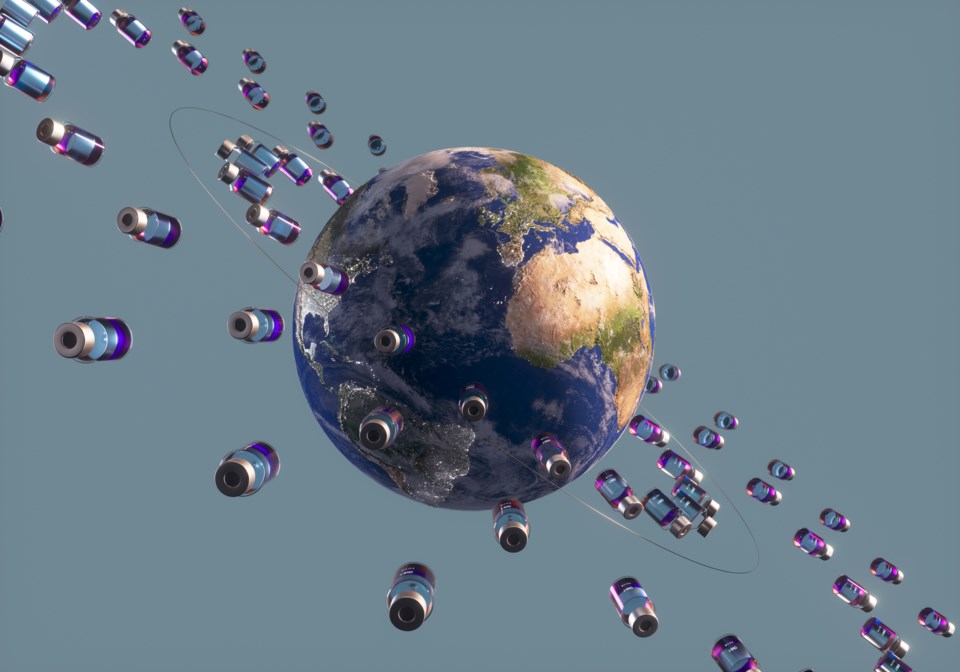For the last several weeks we have been hyper focused on our own community as we saw the case numbers of COVID-19 skyrocket.
Acting a bit like a spoiled child, I’m afraid, we demanded that our community and those who work here get vaccinated immediately and though it’s hard to know exactly how it all came together (as spokespeople just seem to want to stay mum on it) it’s clear that local government working with Vancouver Coastal Health medical leaders, our own local medical professionals and the weight of our tourism and business sector bore down on decision makers, and the clinics were put in place.
We all heaved a sigh of relief, and our cases have gone from hundreds a week to just 15 cases last week, April 26 to May 2.
Let’s think about that for a moment.
Vaccination, most people following health guidelines not to travel, and not eating inside restaurants led to a steep decline in COVID-19 here.
Not exactly rocket science, but still not within the grasp of some.
And it’s not just Whistler which is seeing success with this process. Prince Rupert saw the same pattern. Like Whistler in mid-March, the city of 12,000 had some of the highest COVID-19 transmission rates in B.C. Weekly cases peaked at 117 between March 7 to 13 there—mass vaccinations were started in the city March 15 with 85 per cent getting immunized.
The week of April 11 to 17 case numbers had dropped to just three in Prince Rupert.
These examples, though, are happening amidst a frightening third wave of the coronavirus across B.C., indeed across Canada.
And if we switch our viewpoint from the hyper local to provincial to national to global the reality of the way forward in fighting this killer virus clearly has to be on a worldwide scale.
In only the last few months pharmaceutical companies have produced millions of doses of COVID-19 vaccine, and in the coming months into 2022 the production will be in the billions. But some 11 billion doses are required to vaccinate 70 per cent of the world’s population—assuming two doses are given per person.
Like anything else, vaccine production is being impacted by COVID-19 with interruptions to supply chains for manufacture—producing a vaccine requires more than 200 pieces of equipment, including glass vials, filters, resin, tubing and disposable bags.
“If any critical item falls short, then it can disrupt the entire process,” Richard Hatchett, chief executive of the Coalition for Epidemic Preparedness Innovations, a non-governmental organization headquartered in Oslo, told a summit of manufacturers and policymakers last month, reported Nature.
In developed countries the race is on to get populations vaccinated—high and upper-middle income countries (about one-fifth of the worlds population) have so far secured 6 billion of 8.6 billion available doses. But this virus is going to continue to seriously impact people globally, and the global economy, unless the vaccine reaches all nations.
Manufacturers such as BioNTech, the Serum Institute of India, Astra Zeneca, South Africa’s Aspen Pharmaceuticals, and Johnson & Johnson are making the vaccine, but with politics, questions about the rights over intellectual property of the vaccines, and some producing nations needing all the vaccine they can make themselves, there are serious concerns about getting doses to low-income nations.
Yes, the COVAX program is up and running—this program has international funders, including Canada, pledging to vaccinate one-fifth of the world’s population. But it is generally accepted that this is not enough to wrestle this coronavirus to a place where it is not disrupting everything.
Think for a moment about the stories coming out of India (population 1.3 billion) as it grapples with a truly horrifying pandemic situation—where there are a reported 400,000 daily cases (real case numbers are likely 10 times this, say experts) and the daily death count is at 3,600 a day (also believed to be seriously underestimated).
Dr. Madhukar Pai, a Canada Research Chair in Epidemiology and Global Health at McGill University told CBC’s The Sunday Magazine on May 2 that India’s pandemic threatens the world.
He is advocating, along with many other leading scientists, that the “recipe” for the vaccines be shared with all nations so that they can make their own as fast as possible.
“The virus is bad enough, but if you combine the virus with idiotic and criminally negligent politicians then the result is catastrophic and that is what we are seeing in several parts of the world now,” said Pai.
“This cannot be about holding vaccine and keeping it to ourselves and having this stupendously foolish idea that just vaccinating ourselves in the rich countries is going to keep us safe.
“Viruses don’t give a damn about national boundaries and yet we are stuck with this nationalistic paradigm, which is forcing us to hold [vaccines] rather than saying if some part of the world is in crisis we have to help, otherwise that variant is coming back to us—in fact they are already here.
“We will never be safe until we really vaccinate the whole world.”
We need only look at the examples of polio and smallpox to see the wisdom of his words.




